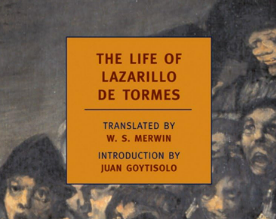Chapter XIII: How Lazaro Was a Squire for Seven Women at One Time
byChapter XIII: How Lazaro Was a Squire for Seven Women at One Time begins with his arrival in Valladolid, a city where appearances often dictate opportunities. Dressed in layers of odd garments stitched together for maximum sympathy, Lazaro doesn’t just walk the streets—he performs his suffering to attract pity. The reaction is mixed; some laugh, others toss him coins, but either way, it works. From those contributions, he scrapes together enough to eat, though not enough to live with dignity. Things shift when he meets Juana Perez, a veiled woman who sees potential in his performance. Rather than hiring him as a simple servant, she offers him a unique arrangement—one that is both humorous and revealing of the lengths people go to maintain appearances.
Juana explains she cannot afford to keep a squire on her own. Her solution is unconventional: Lazaro would be shared among her and six other women. Each would pay him a modest wage, and he would divide his time among them as needed. Eager to escape street begging, Lazaro agrees. His cane is thrown aside—a theatrical exit from his prior disguise—and his duties begin. Each woman presents a different challenge, but he adapts quickly. The routine offers a steady, if small, income, and introduces him to an entirely new kind of domestic drama. Far from being a glamorous post, his new role demands flexibility, patience, and a talent for subtle observation.
His daily tasks shift from sweeping floors to carrying messages, even to offering an arm on strolls meant to display his mistresses’ false respectability. These women, bound by class expectations yet limited by economic constraint, rely on illusion as much as Lazaro does. One of them, the wife of a tanner, complains constantly but pays on time. Another, the lively girl, teases him endlessly but insists he carry her parasol in the market. Perhaps the most generous is the tripe merchant who, though less refined, ensures he never goes hungry. Each woman reveals a different facet of society’s attempts to maintain status while living far from wealth or virtue.
The house of the last mistress, the devout woman, appears at first to be a retreat of holiness. Her piety is loudly professed, and she’s often found praying with fervor. Yet Lazaro, observant as ever, soon notices a curious rhythm of nighttime visitors. The friars, garbed in robes of humility, leave behind coins, cheeses, and small trinkets—gifts that mysteriously vanish by morning. Lazaro is asked to carry these items out discreetly. In doing so, he becomes a quiet accomplice to a daily performance of morality, one he finds amusing rather than offensive. He sees no scandal, only routine hypocrisy hidden behind whispered prayers.
Despite being paid in small amounts by each woman, Lazaro earns enough to support himself modestly. His living quarters are little more than a storage room, but it is dry and somewhat private. Through this chapter, his wit remains intact, offering dry commentary on the contradiction between public virtue and private action. Lazaro doesn’t judge harshly; instead, he treats duplicity as a universal constant. Everyone, from beggar to friar, plays a part to survive. And he, ever the survivor, chooses to laugh rather than cry at the absurdity of it all. His experiences provide insight into gender, religion, and class without preaching—just showing.
In serving these seven women, Lazaro discovers not just livelihood but also an informal education in human behavior. He learns when to speak, when to vanish, and how to turn indignity into leverage. He comes to understand the silent agreements that structure everyday life—the unspoken deals, the performative roles, the delicate balance between servitude and agency. His tale is rich with irony but never bitter. It is not simply about being a servant to many; it is about how identity and utility shift with need. This chapter, like the rest of his story, reveals more about society than about Lazaro himself—yet it is through his eyes that truth finds its clearest reflection.
Through these experiences, the reader is shown how resourcefulness can sometimes be more valuable than virtue. Lazaro’s adaptability isn’t simply a survival tactic; it’s a mirror to the world around him. In serving seven women—each caught in her own façade—he quietly exposes a world built on masks. Yet he also reminds us that behind those masks, people seek joy, love, and dignity, even if through deception. The chapter closes not with judgment but with a sense of quiet resilience, proving once again that the poorest man in the room may be the wisest observer of all.

